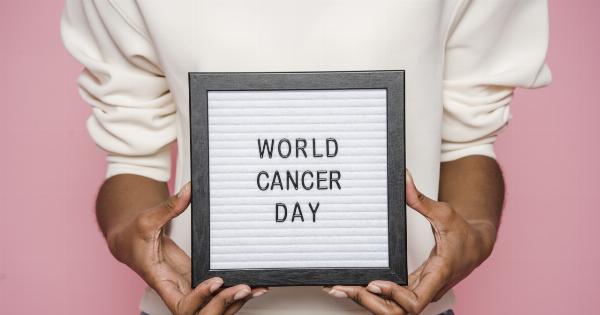Cancer is a disease that affects millions of people worldwide. Despite the high prevalence of this disease, talking about cancer remains a taboo topic in many cultures.
The stigma surrounding cancer prevents people from seeking the treatment they need, and it can also lead to isolation and shame for those who have been diagnosed with cancer.
Why is there a stigma surrounding cancer?
One reason for the stigma surrounding cancer is that people often think that cancer is contagious. They may avoid someone who has cancer, thinking that they might contract the disease themselves.
In addition, there is a perception that cancer is a death sentence, and when someone is diagnosed, it is seen as a failure on their part. People may believe that those who have developed cancer have done something wrong in their lives to bring on the disease.
Another reason for the stigma is that people often feel uncomfortable talking about cancer and other serious illnesses. It is a difficult topic to broach, and people may not know what to say or how to react when someone tells them they have cancer.
This can lead to feelings of isolation and loneliness for people who have been diagnosed with cancer.
The Consequences of the Stigma
The stigma surrounding cancer can have serious consequences. For one, it can prevent people from seeking the treatment they need.
If someone is too ashamed or afraid to talk about their symptoms and seek help, their cancer may go untreated for too long, making it harder to treat.
Those who are living with cancer may also face discrimination and isolation. They may feel like they cannot talk about their disease without being judged, and they may even feel like they are a burden on others.
This can lead to depression and anxiety, making it harder to cope with the physical symptoms of cancer.
Furthermore, the stigma surrounding cancer can prevent funding for cancer research. Many people are reluctant to donate money to cancer charities because they do not want to be associated with the disease.
This lack of funding can slow down progress in the fight against cancer.
Breaking the Stigma
The good news is that we can break the stigma surrounding cancer. The first step is to talk about cancer openly and honestly.
By talking about this disease and sharing our experiences, we can help to remove the shame and isolation that often comes with a cancer diagnosis.
We can also dispel misconceptions about cancer by educating ourselves and others. For example, we can explain that cancer is not contagious and that it is not always a death sentence.
We can also talk about the importance of early detection and treatment, emphasizing that seeking help is a sign of strength, not weakness.
Another way to break the stigma is to support cancer charities and research organizations. By donating time or money, we can help to fund research and support programs that improve the lives of people with cancer.
Finally, we can show compassion and support to those who have been diagnosed with cancer.
By listening to their stories, offering help, and being there for them, we can help to alleviate the loneliness and isolation that often accompanies a cancer diagnosis.
Conclusion
Cancer is a disease that affects millions of people worldwide, yet the stigma surrounding this disease prevents many from seeking the treatment and support they need.
By breaking the stigma and talking openly about cancer, we can help to support those who have been diagnosed with the disease and contribute to the fight against cancer. Let us join together in breaking the stigma of cancer and creating a world where everyone can feel supported and empowered in the face of this difficult disease.




























